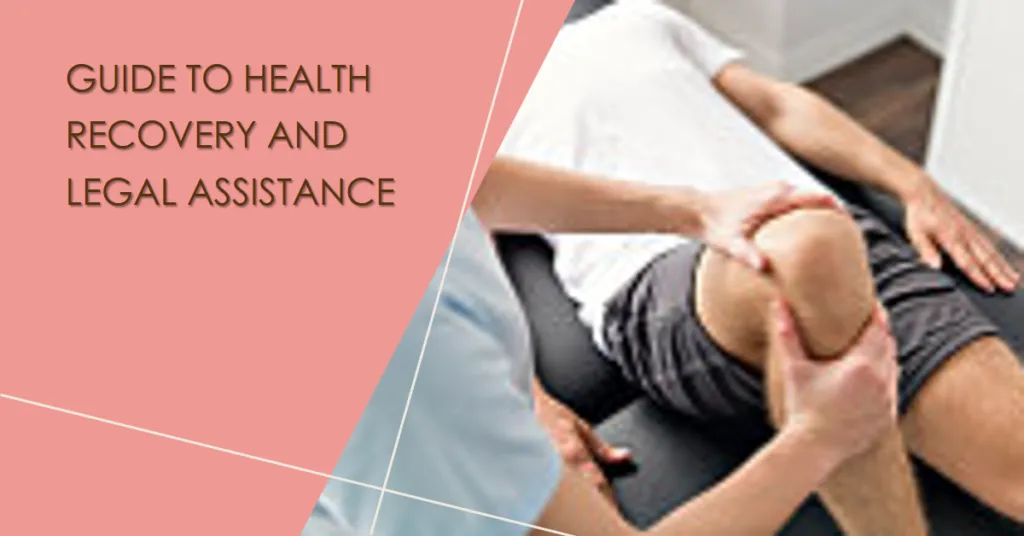In the fast-paced world of motorcycle riding, the exhilaration of the open road can sometimes be overshadowed by the harsh reality of accidents. “Beyond the Crash” seeks to be a guiding beacon through the aftermath of motorcycle accidents, offering a comprehensive approach to health recovery and legal assistance for riders navigating the challenging road to recovery.
Riding on the Edge: Understanding the Statistics of Motorcycle Accidents
Before delving into recovery strategies, it’s essential to understand the gravity of the issue at hand. Recent statistics reveal a concerning rise in motorcycle accidents globally. As mentioned by www.aldenlawfirm.com, according to data from the National Highway Traffic Safety Administration (NHTSA), motorcycle fatalities accounted for 14% of all traffic-related deaths in the United States in 2022.
These statistics underscore the urgent need for heightened awareness and effective strategies to address the unique challenges faced by motorcyclists on the road.
Moreover, these statistics underscore the disproportionate impact on certain demographic groups, with a notable increase in accidents involving riders aged 40 and above.
As we delve deeper into these numbers, it becomes apparent that the issue extends beyond mere percentages; it represents a pressing public health concern that necessitates a multifaceted approach encompassing legislative action, community engagement, and enhanced safety measures.
Addressing this nuanced aspect of the statistics is crucial for shaping effective interventions and fostering a safer environment for motorcyclists.
Navigating the Asphalt Jungle: Infrastructure Challenges for Motorcycle Riding
Highway infrastructure plays a pivotal role in ensuring the safety of motorcyclists. From well-maintained roads to clear signage, proper planning can significantly reduce the risk of accidents. However, challenges persist, including poorly designed intersections, inadequate lighting, and subpar road conditions.
This section explores the critical relationship between highway infrastructure and motorcycle safety, advocating for improvements that can make roads safer for riders.
As we navigate through the complexities of infrastructure challenges, we must also acknowledge the legal intricacies that emerge when motorcycle accidents occur.
Legal Pitfalls: The Difficulties of Motorcycle Accident Cases
Motorcycle accident cases present unique legal challenges that require expertise and experience to navigate successfully. According to harrispersonalinjury.com, determining liability in these cases can be complex, with factors such as visibility, road conditions, and adherence to traffic laws playing significant roles.
In addition to these complexities, the subjective nature of assessing fault in motorcycle accidents adds another layer of challenge. Bias against motorcyclists is unfortunately not uncommon, and overcoming preconceived notions can be an uphill battle for those seeking justice. Insurance companies may attempt to exploit these biases, further complicating the claims process.
Moreover, gathering evidence in motorcycle accident cases presents its own set of challenges. Unlike accidents involving larger vehicles, the aftermath of a motorcycle crash may not leave behind clear evidence of fault. This lack of tangible proof can create hurdles in establishing liability and may require thorough investigations, accident reconstructions, and expert testimony.
How Attorneys Can Help: A Guiding Hand in the Legal Maze
Attorneys specializing in motorcycle accidents are equipped with the knowledge and skills to guide individuals through the legal maze that follows a crash. From initiating investigations to negotiating with insurance companies, these legal experts play a pivotal role in ensuring that victims receive the compensation they deserve.
Attorneys can actively advocate for riders, working to establish liability and pursue legal remedies against negligent parties.
Through the active voice, we highlight specific examples of how attorneys can build a robust case, negotiate settlements, and represent their client’s interests in court. This section serves as a testament to the critical role attorneys play in securing justice for motorcycle riders.
Impact and Injuries: Understanding the Physical Toll of Motorcycle Accidents
As we delve deeper into the consequences of motorcycle accidents, it’s essential to explore the most common injuries riders may face. From fractures and traumatic brain injuries to road rash and spinal cord damage, understanding the physical toll of these accidents reinforces the urgency of preventive measures and legal recourse.
Injuries sustained in motorcycle accidents can have long-lasting effects, both physically and emotionally. Recognizing the commonality of these injuries emphasizes the need for a comprehensive approach to safety, involving both preventive measures and legal support when accidents occur.
Moreover, the road to recovery is often complicated by the emotional toll of these injuries.
The psychological impact of a motorcycle accident can manifest as anxiety, depression, or post-traumatic stress disorder (PTSD). Recognizing the multifaceted nature of these injuries emphasizes the need for a comprehensive approach to recovery—one that addresses not only the physical aspects but also the mental and emotional well-being of the rider.
Conclusion: A Road to Recovery Guided by Legal Expertise
In conclusion, “Beyond the Crash” serves as a comprehensive guide for motorcyclists navigating the challenging journey of health recovery and legal assistance after an accident. By addressing the alarming statistics, emphasizing the role of highway infrastructure, discussing the legal pitfalls, and highlighting the invaluable support of attorneys, we hope to provide riders with a roadmap to reclaim their lives after a crash.
As we advocate for improved highway infrastructure, increased awareness, and legal assistance, we contribute to a shared vision of roads where motorcyclists can ride confidently, knowing that the road to recovery is well-guided and supported.
By combining the resilience of riders with the expertise of legal professionals, we strive to create a safer and more supportive environment for motorcyclists on the open road.
Furthermore, recognizing that the aftermath of a motorcycle accident extends beyond physical injuries, it is essential to underscore the critical role of mental health support in the recovery process.
Legal expertise should extend beyond the courtroom, with attorneys ensuring that clients have access to resources that address the emotional toll of the incident. This comprehensive approach not only aids in the pursuit of justice but also facilitates a more holistic and successful recovery journey for those who have experienced the impact of a motorcycle accident.

